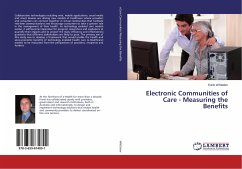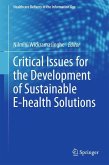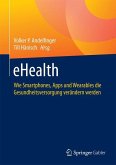Collaborative technologies including web, mobile applications, social media and smart devices are driving new models of healthcare where providers and consumers can connect together in virtual communities that facilitate real-time communications and encourage consumers to take a greater role in the management of their health. As technology enabled care models evolve, it will become imperative for program researchers and evaluators to quantify their impacts and to answer the many efficiency and effectiveness questions that different stakeholders are likely to pose. The primary aim of this study was to develop a framework that would enable the health and socio-economic benefits of technology enabled health care (e-Healthcare) models to be evaluated from the perspectives of providers, recipients and funders.
Bitte wählen Sie Ihr Anliegen aus.
Rechnungen
Retourenschein anfordern
Bestellstatus
Storno








